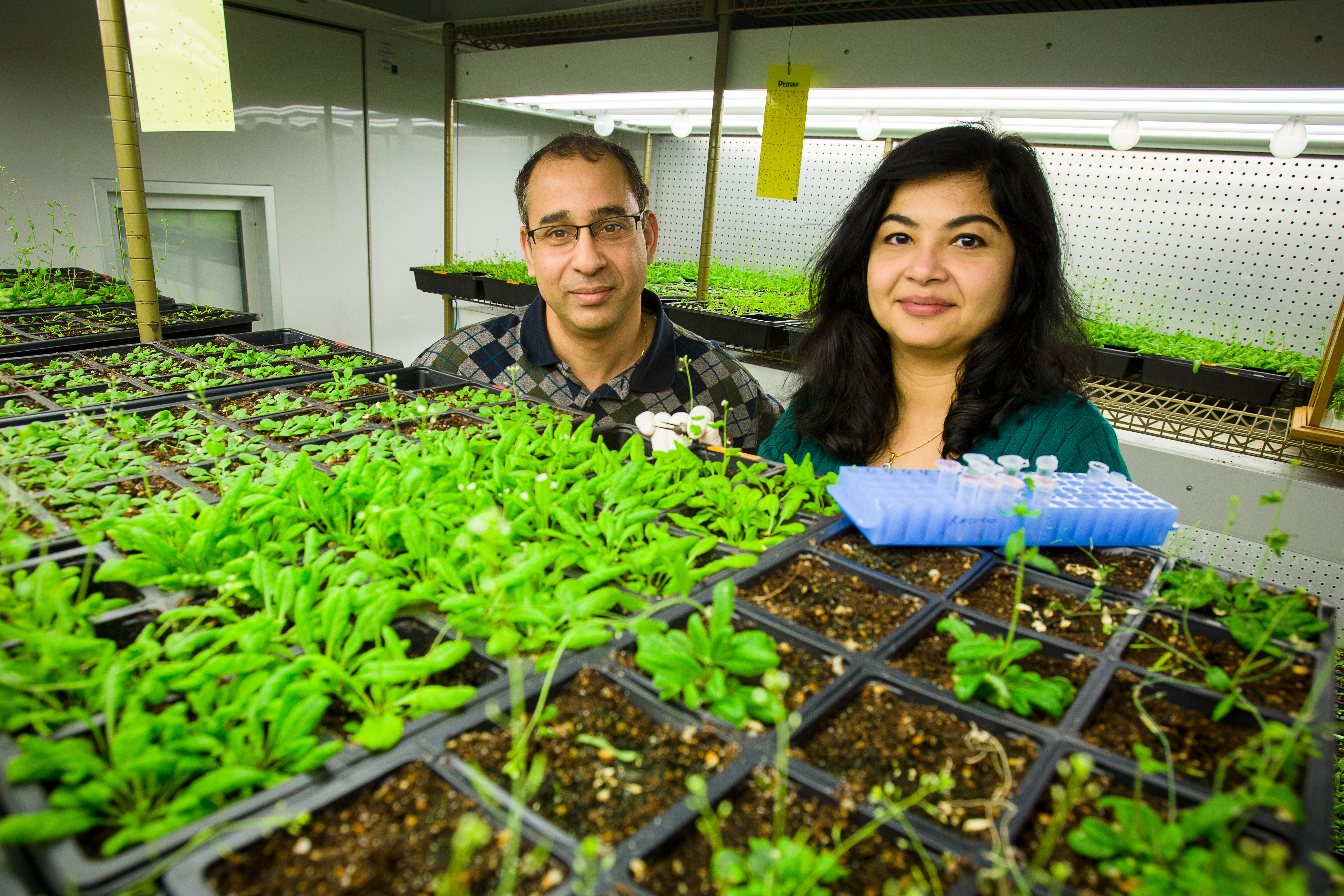UK plant disease research finding may benefit humans
UK plant disease research finding may benefit humans

Researchers in the University of Kentucky College of Agriculture, Food and Environment have found that plant lipids, which are fats, oils or waxes, play an important role in plant defense against pathogens. These same lipids contribute to the nutritional properties of vegetable plants and may possibly play a role in humans’ abilities to fight diseases.
Husband and wife team Pradeep and Aardra Kachroo study plant responses to microbial pathogens in UK’s Department of Plant Pathology. They study resistance pathways that, when triggered, can fend off a wide range of pathogens. Some of these pathways and components exist in all organisms.
The Kachroos and their lab team found that galactolipids, which are lipids containing the sugar galactose, are needed in plants so they can protect themselves from secondary infections, also known as systemic-acquired resistance. Galactolipids are the most abundant lipids in plants and have been linked with anti-inflammatory and anti-cancer benefits of a diet rich in green, leafy vegetables due to their ability to regulate free radicals like nitric oxide.
“Galactolipids are required for the plant to accumulate other signaling molecules in the systemic-acquired resistance pathway in plants. Individually each of these molecules are linked to various human disorders, but we don’t know if they act in a similar fashion in disease resistance in humans as they do in plants. Importantly, several studies have shown that one of the galactolipids we studied here has anti-inflammatory effects in humans.” Aardra Kachroo said.
The amount of galactolipids varies among plants. Spinach, already considered a superfood, contains almost 20 times the amount of galactolipids compared to other plants like cabbage.
“When you consume plants, you are ingesting galactolipids,” Pradeep Kachroo said. “It may be that they provide an additional benefit or play a large role in what makes certain plants more nutritious.”
Free radicals are well-known signaling mechanisms within the cells of both plants and humans. Pradreep Kachroo said many human disorders such as Alzheimer’s and Parkinson’s disease are attributed to free radicals.
“We are not saying plant galactolipids are the answer to these diseases, but they could play a part in it,” he said.
Their paper was published recently online through Cell Reports. It was also selected for publication in a Chemistry and Biology Select section of Chemistry and Biology. This monthly section highlights interesting research conducted across the field of chemical biology.
The Kachroo’s research project was funded through the National Science Foundation’s Division of Integrative Organismal Systems.
Team members that contributed to the finding include Qing-ming Gao, Keshun Yu, Ye Xia, M.B. Shine and Caixia Wang. DuRoy Navarre, a research scientist with the U.S. Department of Agriculture’s Agricultural Research Service in Prosser, Washington, also contributed to the paper.
